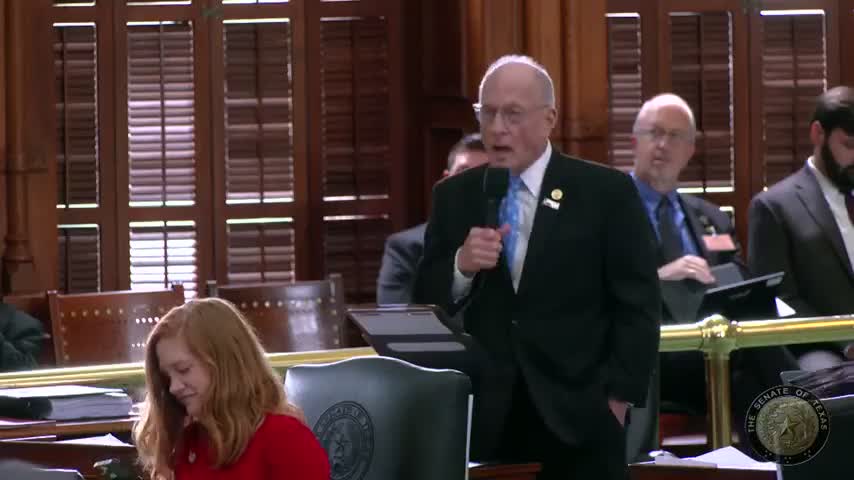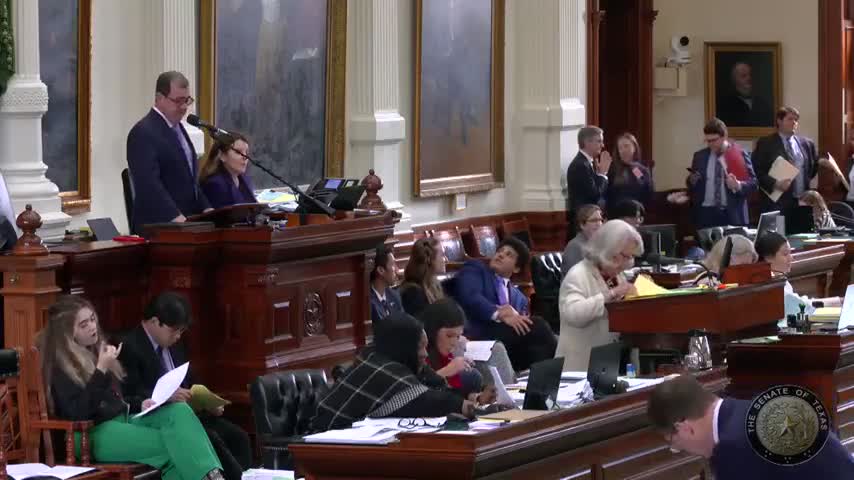Article not found
This article is no longer available. But don't worry—we've gathered other articles that discuss the same topic.

Senate backs revised TWIA financing plan, adopts amendment to ease reinsurance pressure

Senate passes bill banning municipal and county firearm buyback programs after hours of debate on local control

Senate adopts amendment letting AG's open records unit assist on Open Meetings Act probes and requiring prosecutors to post nonprosecution reasons

